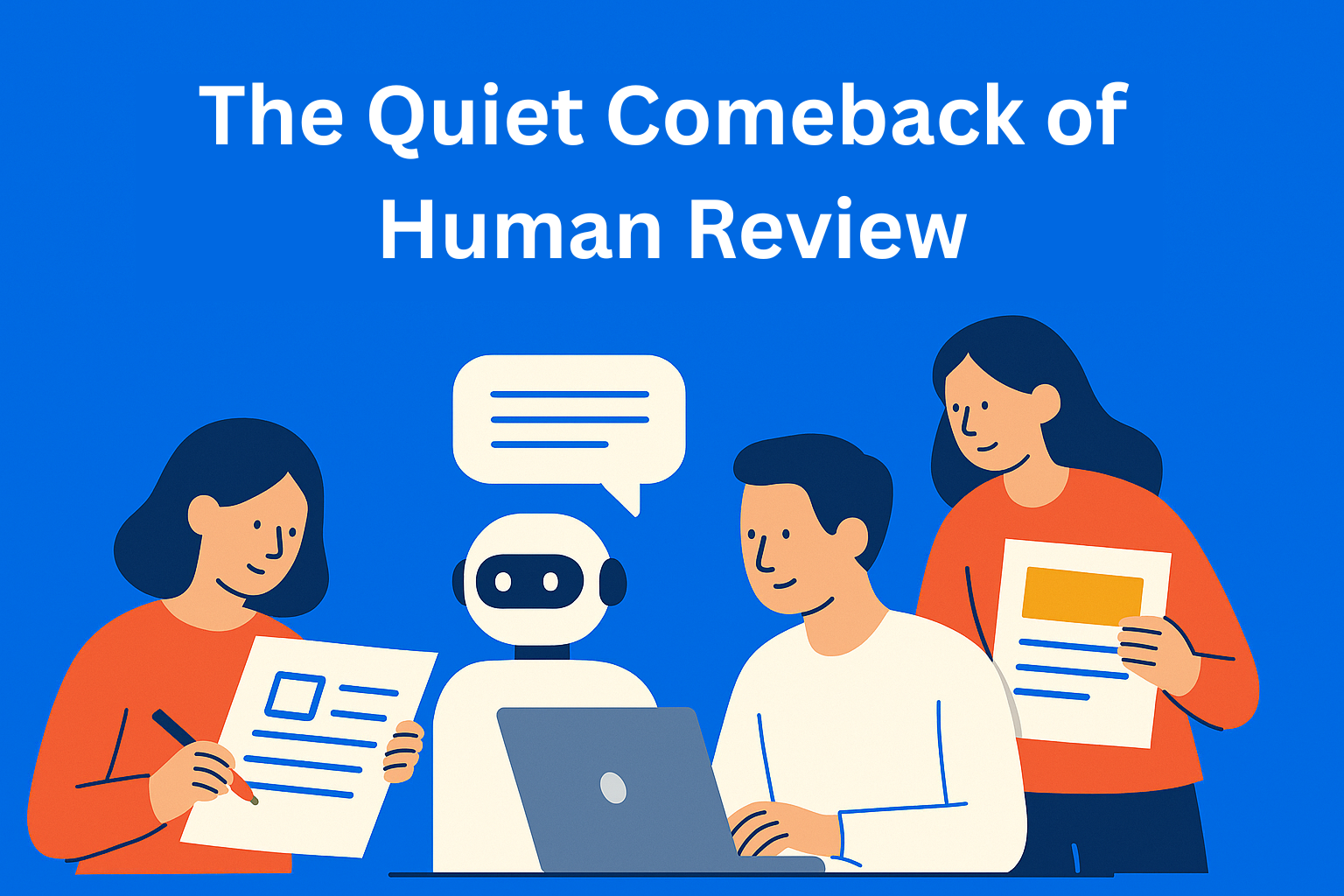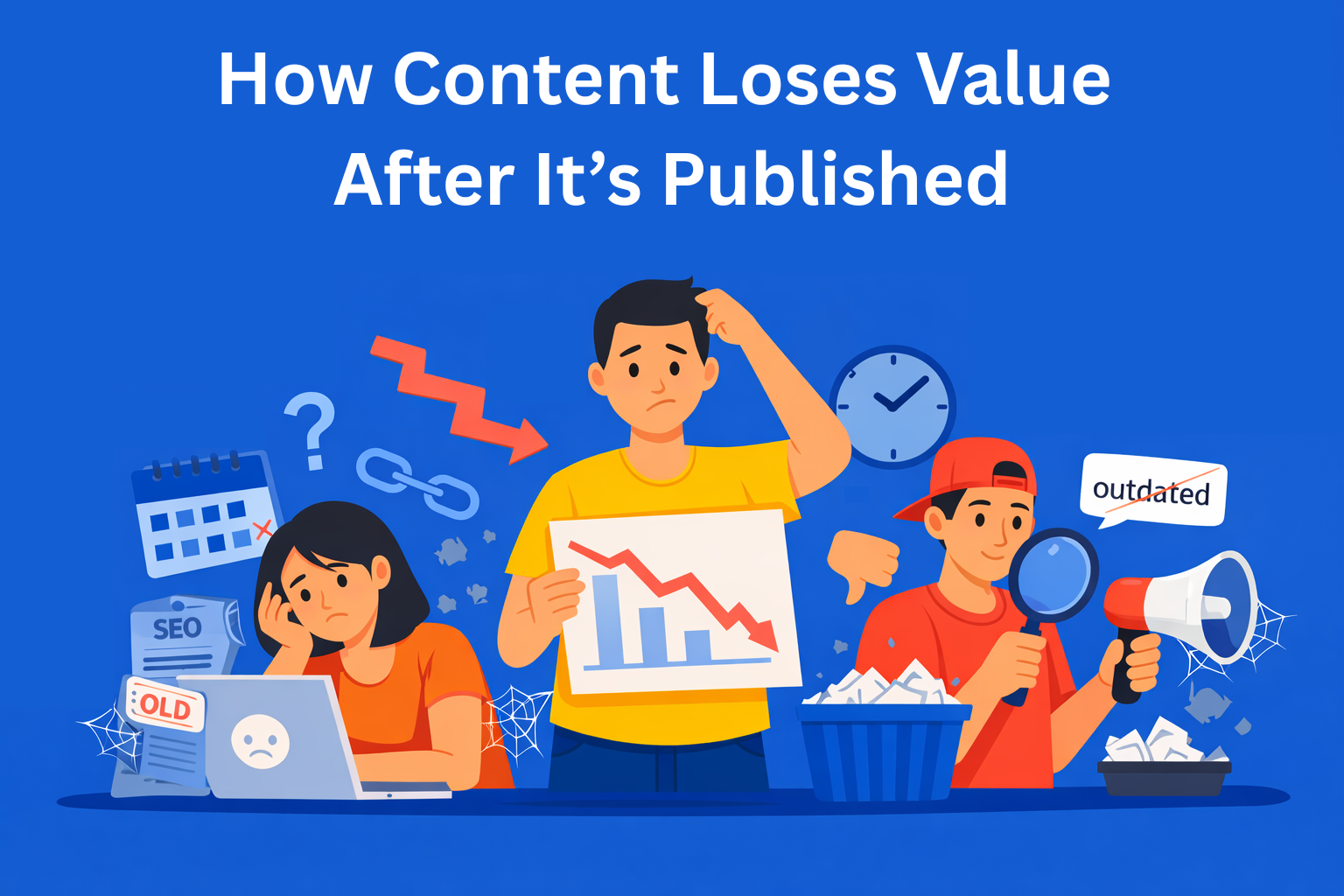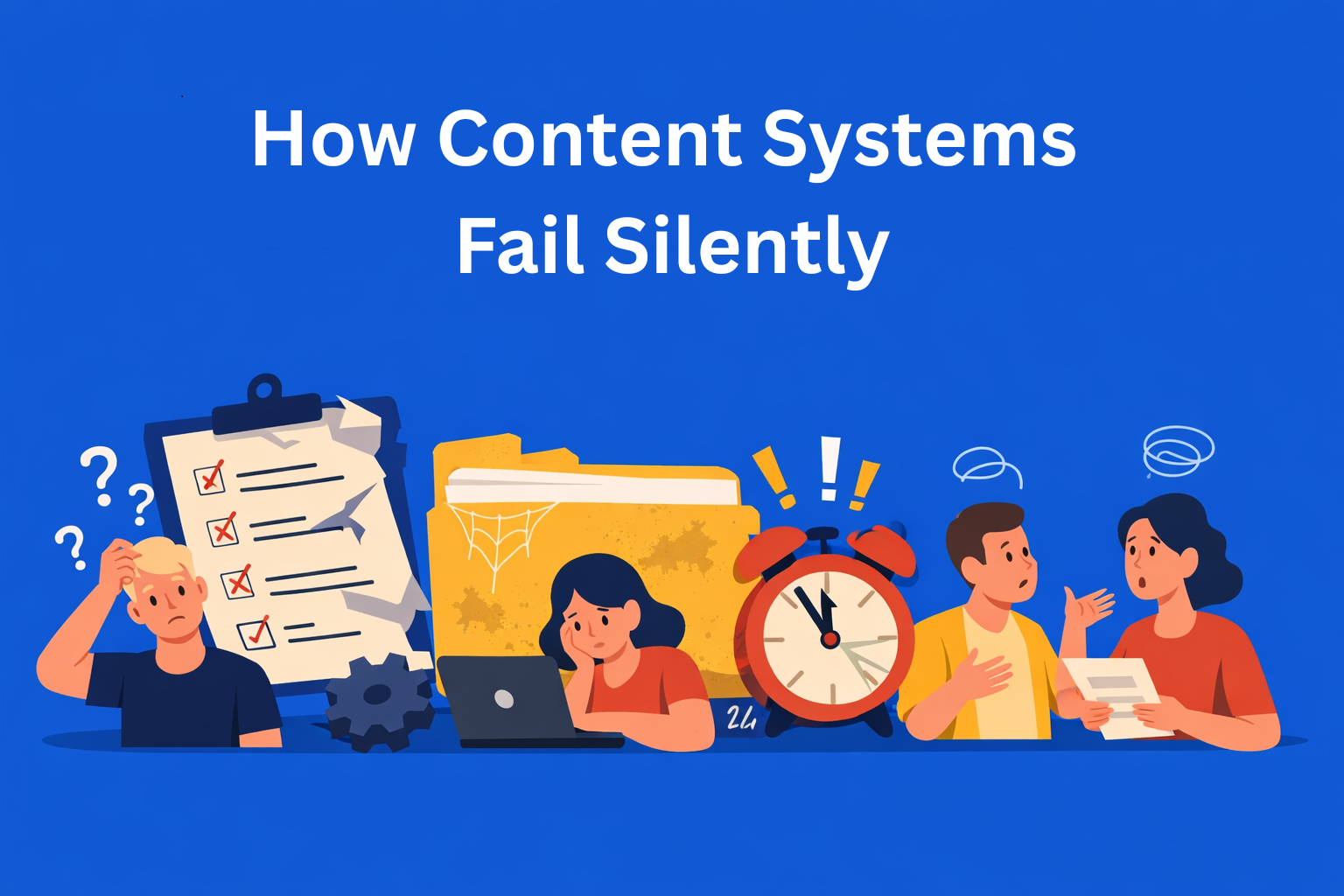The Quiet Comeback of Human Review
As AI takes over more of the writing, we’re losing that human touch. That’s why the need for people is making a comeback, machines can write fast and accurately, but only humans can add emotion, understanding, and authenticity. AI creates words, but people give those words meaning and heart.

In recent years, artificial intelligence has taken over a bunch of writing tasks - from blogs and summaries to product descriptions and even social media posts. Everything is faster, easier, and honestly, often pretty good.
But no matter how smart these tools get, they still can’t capture the human nuance, tone, and emotion. That’s why human review is quietly making a comeback. For now, it’s happening subtly, but it’s only a matter of time before it becomes essential.
Key Takeaways
- AI is fast, but often flat - Automated content lacks emotion, warmth, and personality, which makes it harder to truly connect with readers.
- Human review adds meaning - Editors now play a key role in bringing tone, nuance, and authenticity to AI-generated drafts.
- Brand voice needs human judgment - AI can’t fully grasp brand identity; only people can ensure content sounds consistent and on-brand.
- The future is “human-in-the-loop” - The most effective content today blends AI speed with human emotion, oversight, and storytelling instinct.
- Quality stands out in a noisy world - In an era of mass automation, the brands that will win are those that still feel human.
Automation Everywhere - But No Emotion
AI can write a grammatically perfect text. But let’s be honest - it often sounds like a robot talking. Everything’s technically right, but it feels cold. Like a singer that hits every note, but the song is soulless.
AI can also explain how a product works, write a guide or a newsletter, but it doesn’t know how to capture the emotion of someone actually using that product. There’s no lived experience, no “aha” moment.
Humans, on the other hand, recognize emotion in stories. They understand when a reader should smile or stop and think. The human touch gives writing its soul - that little spark that makes someone actually want to read to the end.
Why People Are Coming Back into the Game
Brands have quickly realized that audiences can feel when something is AI-generated. There’s no life, no charm - everything sounds like it came from the same place. That’s why human review is becoming a key step again.
Editors today aren’t just there to fix commas. They’re there to bring meaning, tone, and authenticity to a piece of writing. To fill it with emotion and story.
Their job is to add context, humor, and warmth to what AI produces. To say: “Okay, this has structure, but it doesn’t have a story.” And turn it into something that feels like a real person wrote it for you.
That’s why editors are more important than ever. They’re not slowing things down; they’re making sure the text actually makes sense and captures attention. They simply ask: “Would this interest me?” - and if the answer is yes, that’s what matters.
Humans and AI: A New Kind of Teamwork
These days, it’s no longer “humans versus machines.” It’s “humans and machines.” AI can draft something in minutes, but it’s the human who turns it into a story worth reading.
New roles have even started to appear (AI content editor, prompt strategist, brand storyteller) people who know how to use AI but also how to enhance it with human insight.
Think of AI as a fast assistant who creates the foundation, and the editor as a director who knows where to add emotion, where to pause, and where to land the point. That’s the combo - speed meets feeling.
AI speeds up the process, but humans decide the quality. And more and more companies are realizing that’s the formula that truly works.
When the Algorithm Doesn’t Know Who You Are
The biggest problem with AI? It doesn’t understand brand personality. It can imitate a style, but doesn’t know why a brand sounds the way it does.
For example, a brand that’s usually friendly and playful might suddenly sound too formal when AI writes for it. Or the other way around - a serious brand could come across as too casual. That’s where human review becomes crucial. It ensures that everything sounds like it genuinely comes from the brand’s voice and heart. That the text feels authentic, not generic.
Audiences notice this instantly. And there’s no shortcut here - authenticity can’t be programmed. Once you lose trust, no AI can help you get it back.
The Human Factor Is What Makes the Difference
A brand that knows how to blend AI speed with human judgment has a massive advantage. Because AI can write a hundred texts a day, but only a person can tell which one actually feels alive.
That’s why editors today aren’t against technology - they’re like photographers in the era of Photoshop. They use the tool but shape it to reflect their style.
That balance between machine efficiency and human intuition is becoming the new norm. More and more, you’ll hear the term human-in-the-loop - a system where AI does most of the work, but the human makes the final call. And that call is what separates average from outstanding content.
The Future of Editing: Back to the Essentials
Editors today aren’t just people who fix mistakes. They’re the guardians of brand voice, making sure every sentence sounds natural and real.
AI is great because it speeds things up, but that ease often comes at a cost - the loss of emotion and warmth. In a world where anyone can use AI, the real question is: who still knows how to tell a story that sticks?
The answer is simple - the one who feels it. The one who understands what a text should awaken in the reader.
The brands that will last aren’t the ones that push out the most content, but those that feel it best. In a time when everyone is chasing quantity, quality and sincerity are what truly stand out. And that’s where humans shine again - bringing meaning, warmth, and soul to every piece.
Conclusion
AI will keep evolving. It’ll get smarter, sharper, and faster. But no matter how advanced it becomes, it will never learn to feel.
So while machines learn to write, humans are returning to read, sense, and refine. They bring back meaning and emotion to texts that would otherwise just be empty sentences.
And maybe that’s the real paradox of our time - as technology advances, people are becoming more important than ever.






